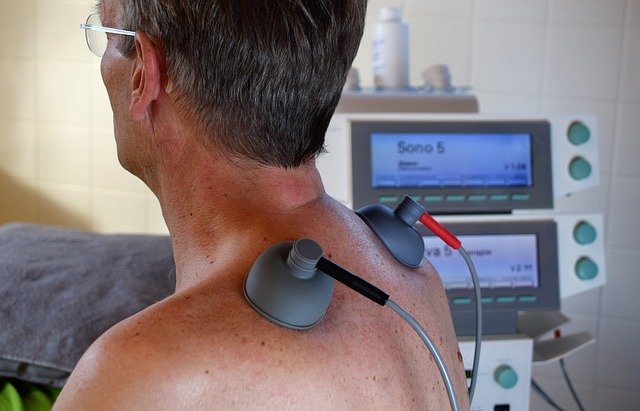Did you know that 40% of people over 50, 54% over 60, and 65% over 70 are known to suffer from a rotator cuff tear?
Many of these injuries go untreated because they may not be that painful initially. But over time, non-symptomatic rotator cuff injuries can aggravate into painful conditions.
What are Rotator Cuff Muscles?
Around the shoulder joint, there’s a group of tough, supple muscles and tendons that keep the bone in the upper arm in place, within the shoulder socket. Called rotator cuff muscles, these are prone to injury from work-outs, lifting heavy weights or repeated overhead motion at work or sports. If it’s left untreated, the injuries may require surgery, joint replacement or transfer of alternative tendons.
If your arm feels weak, hurts when you move it around or you feel a dull ache in the area that doesn’t let you sleep on that side, you may have a rotator cuff injury. Don’t delay! Visit your physiotherapist at once to confirm and get treated appropriately.
Causes of Rotator Cuff Injury
There are primarily two types of rotator cuff tears:
Traumatic: When the tissues weaken, straining the rotator cuff muscles beyond its normal strength capacity, there can be a sudden tear and searing pain that alerts the patient of having injured their shoulder. The patient is unable to function properly immediately. As the inflammation ceases over time, the injury heals in a week or so.
Degenerative: Degenerative rotator cuff tears can be caused by several factors that affects more than the tendon. The trigger can be both intrinsic or extrinsic.
Extrinsic Factors:
- Impingement syndrome within the shoulder making movement difficult
- Imbalanced shoulder muscles or poor posture
- Improper shape of the acromion and acromioclavicular joint
- Repetitive overhead movement involving the shoulders
Intrinsic Factors:
– General health of the patient
– Thyroid problems
– Genetic predisposition
– Poor blood circulation to the tendon area
Physiotherapy Treatment of Rotator Cuff Tears
A well-designed physiotherapy program helps heal rotator cuff tears effectively. You also need plenty of rest and rehabilitation. An expert orthopaedic physiotherapist assesses your condition and designs a rehab program to treat the tear. Progress is evaluated on a regular basis.
The treatment includes:
- Gentle stretching to strengthen the specific muscle groups to correct imbalances
- Manual therapy to improve shoulder mobility and posture
- Proprioceptive exercises to improve motor control and joint function
- Stability exercises for spinal mobility
- Curbing excessive activity or modifying movements
- Suggestions to improve overall health
- Special attention to diet, cardiovascular health and smoking cessation
- Treating rotator cuff tears with physiotherapy and massage therapy
Pro Fusion Rehab, Milton and Pickering, Ontario
Pro Fusion Rehab is a private physiotherapy clinic that is committed to treating acute and chronic stages of pain due to injuries from sports, work and vehicle accidents. Our physiotherapists and massage therapists specialize in treating a wide variety of painful conditions. Call us if you suspect you have a rotator cuff tear before it worsens.
